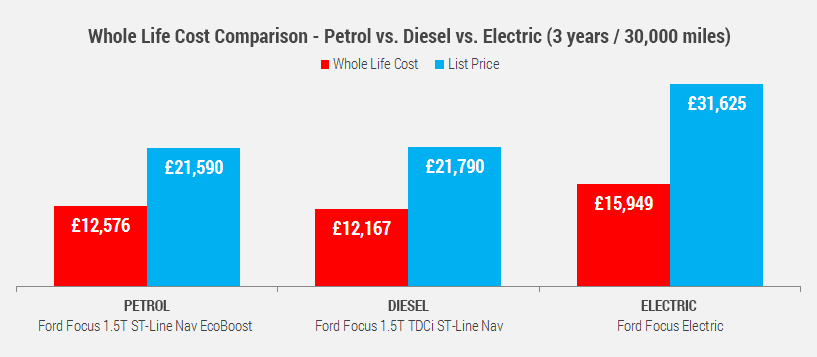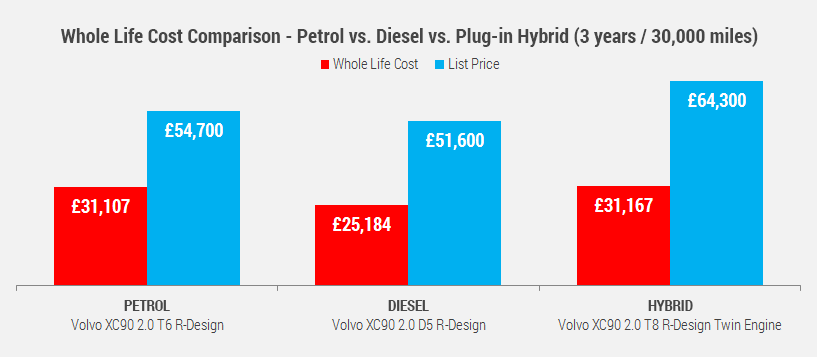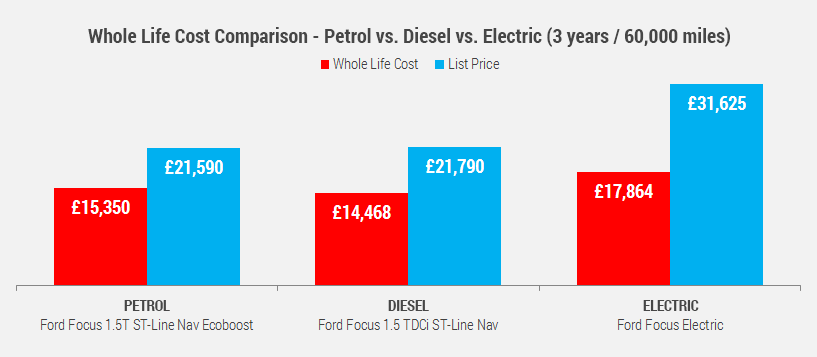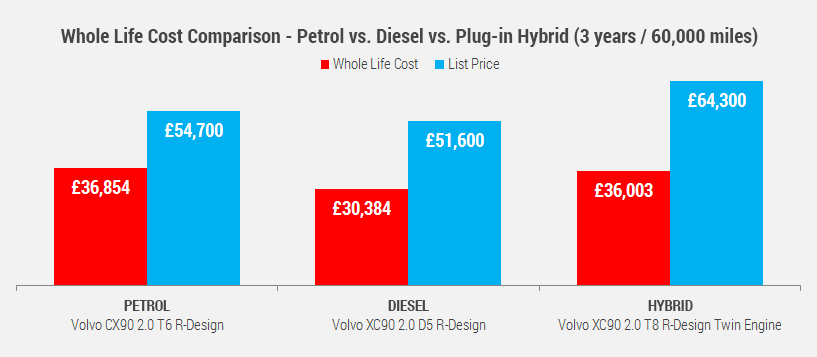S h a r e
Don’t rule out diesel – but look at the alternatives


Posted by
Martin Brown
August 2017
There are many difficult decisions facing managers of company car fleets. And one of the key issues is this: what is the right fuel choice for my fleet?
Diesel has been (past tense) the fuel of choice for company cars for a variety of reasons: it’s fuel efficient, and therefore cost effective; it’s also advantageous on benefit in kind taxation.
But (and here comes the big BUT.)
Diesel has been up against the ropes, recently, taking a series of seriously damaging head blows. The fuel has been fingered as the cause of health damage, notably respiratory disease its cause further undermined by the VW ‘dieselgate’ scandal.
Then there has followed the Toxicity Charge for diesel cars entering the capital city London, which will be introduced this October. And the government’s new Clean Air Strategy document last month, which stopped short of a diesel scrappage plan, spelt out that diesels were the pollution culprits as the UK headed towards the banning of petrol and diesel cars by 2040 – less than 23 years away.
We’ve thrown the odd punch too, in all honesty, not least because we support the general move to greener technology.
But it’s important not to become too unthinking in the prevailing emotional anti-diesel mindscape.
For fleets a balanced view is required.
And it’s this: diesel still has an important place in any fleet. But it’s critical to evaluate all cars to see where diesel is still relevant – or where a petrol or alternative fuel vehicle might fit in.
We’ve been running some interesting figures on a basket of cars, and particularly over lower 10,000 mile per year running cycles, where petrol vehicles make an extremely strong argument. In most cases. But not all the time. I’ve selected a couple to illustrate the point
Before I looked at the figures, I was convinced a diesel Focus would seriously beat a petrol version on running costs. Err…no. Take a look, it’s surprisingly close, while the electric version is off the running cost pace:
On the other hand, a Volvo XC90, when you compare it across three different drivetrains – petrol, diesel, and plug-in hybrid – it’s the diesel that is comprehensively better on whole life costs. See table below:
If we then look at mileages over a 60,000 operating cycle, where the greater fuel efficiency of diesel has a part to play, what are the changes? As you might expect, the Ford Focus diesel stretches ahead on running costs that gives it a clear margin over the petrol and electric models.
Turning to the Volvo, which if you recall had diesel ahead at 30,000 miles, the situation doesn’t change at 60,000, only that the PHEV model is now better on overall costs than the petrol.
So what do we learn from this?
I believe it’s this: vehicle selection has to be more carefully evaluated than ever before. The improving fuel economy of petrol models, and their cheaper list price, really do help to make them more financially viable to run than a diesel.
But not always. Diesel still has an important role to play; but its importance will diminish over time. What that timeframe will be is difficult to ascertain. But for now, don’t discount diesel when it’s the most appropriate choice for your fleet.
You also might like…
If you liked this article then check out our posts about similar topics
EVs – what’s coming next in 2026
There’s seemingly no stopping the flow of new electric cars (EVs), as a greater variety of models, new entrants contin...
We do the Salary Sacrifice thinking for Mortgage Brain
The people at Mortgage Brain spend all day working on mortgage technology to help intermediaries and lenders, so when th...
First Drive: New Tiggo 8 Is A Chery Worth Picking
Why it matters The Chery Tiggo 8 is one of the most talked-about new arrivals in the UK In just four months, the brand ...
When “Good Enough” Fleet Management Stops Being Good Enough
Every year, UK organisations talk about efficiency, governance and value for money Yet behind the board reports and b...
A New Year’s Resolution for Smarter Fleet Management
Every January, businesses everywhere make the same promises: cut costs, simplify operations, do more with less But if...
2025 Wrapped: My First Year as a Fleet Alliance Appointed Representative
As 2025 draws to a close, it feels like the right time to pause, take stock, and look back on my first year as an Appoin...
FRED 82: Turning a Compliance Challenge into a Fleet Opportunity
FRED 82 may look like just another accounting standard, but for organisations running sizeable vehicle fleets, it repres...
Budget 2025 – the key points for fleets and EV salary sacrifice drivers
The 2025 Budget confirms what many in the fleet and salary sacrifice world have been expecting for some time: as electri...
Ready to make the management of your fleet more efficient?
Request a call back




